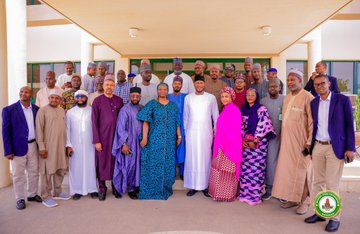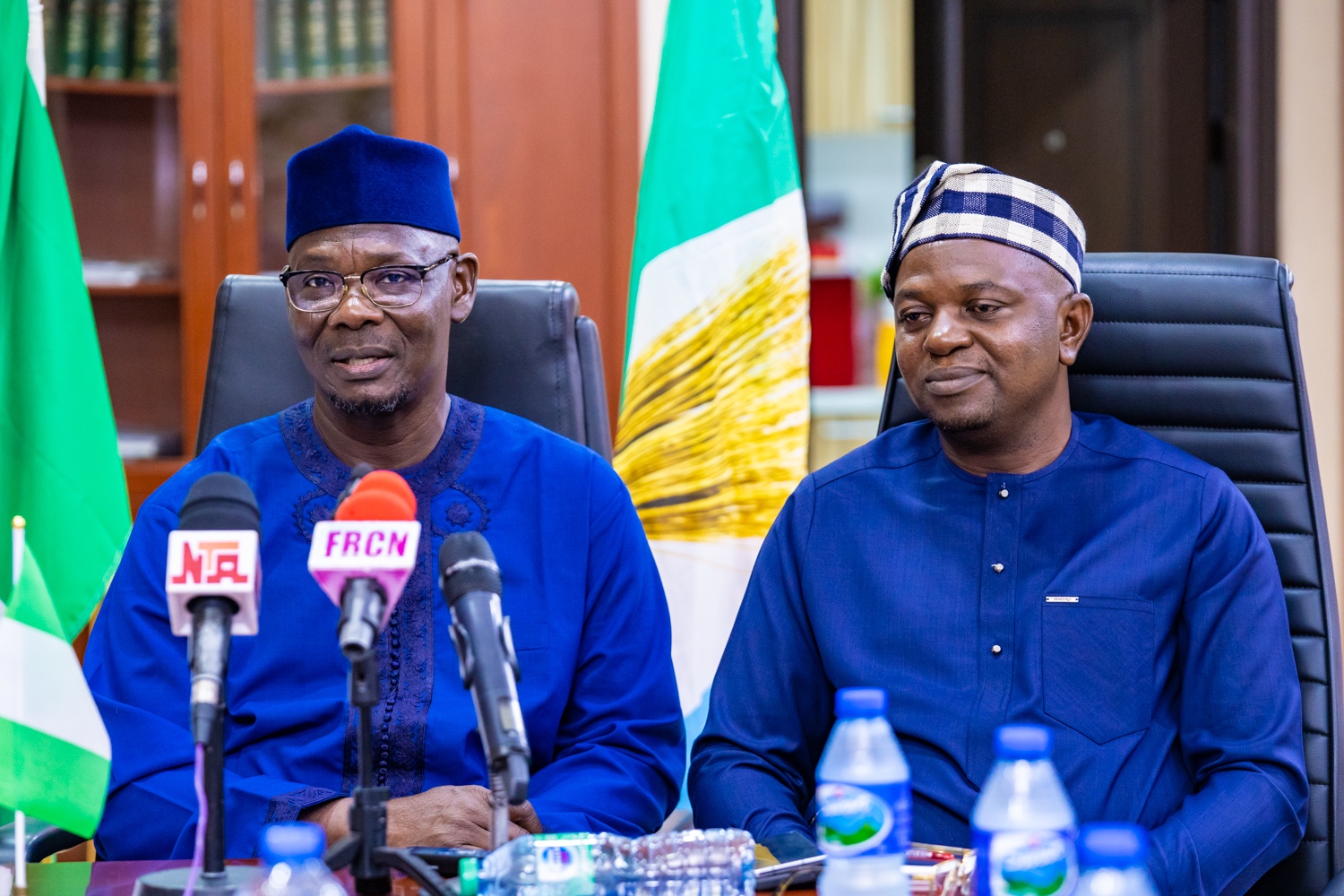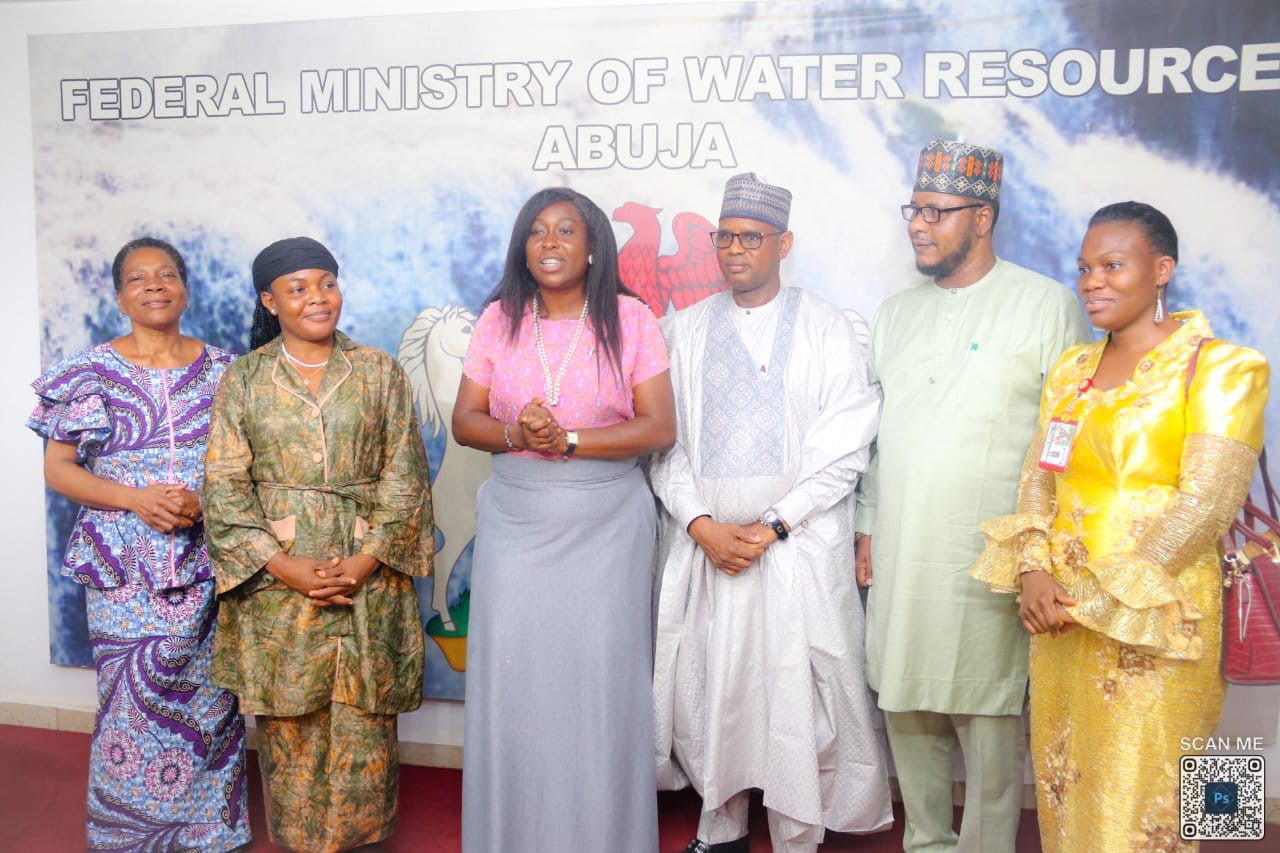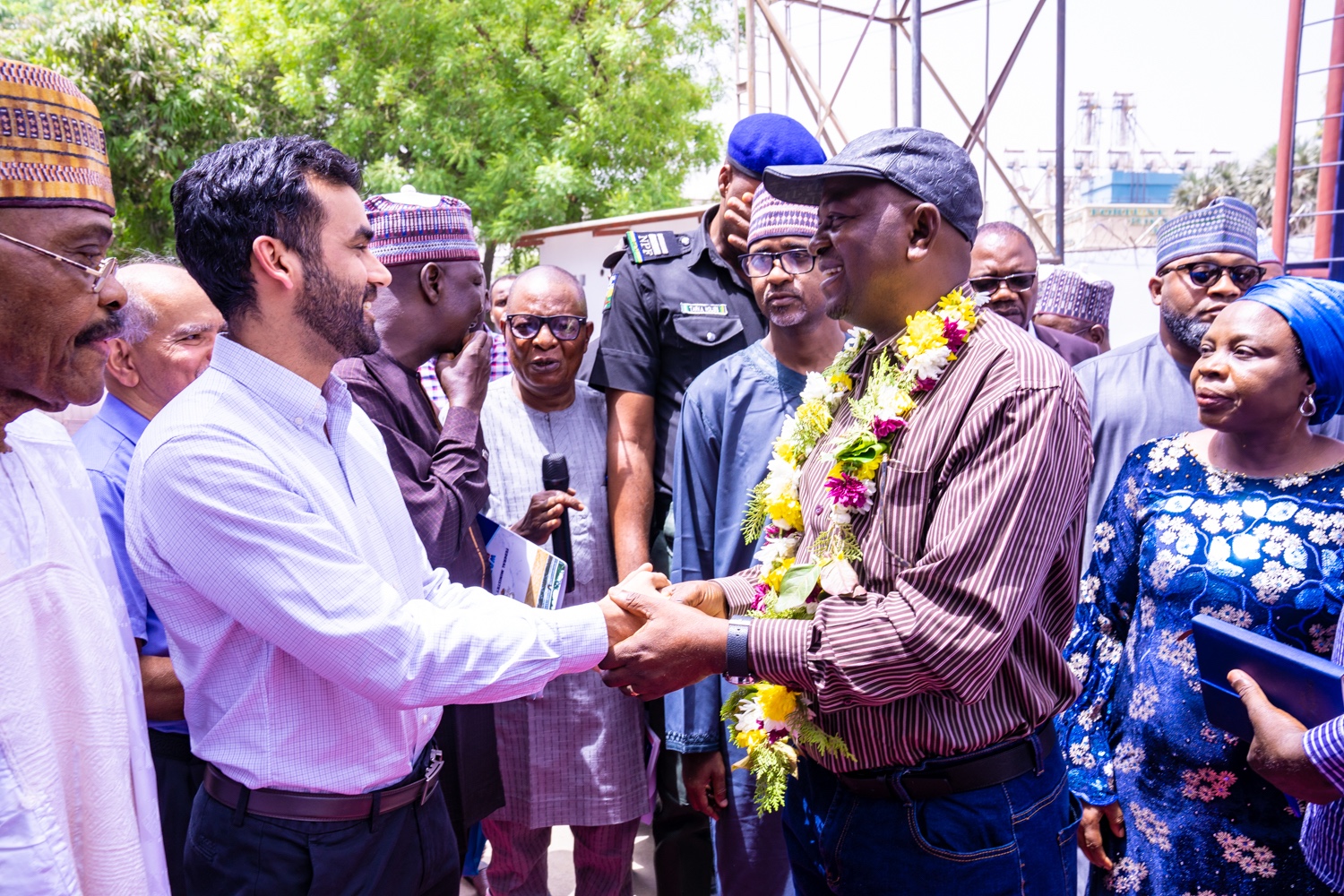Stakeholders Brainstorm On Effective Water Governance For Food Security In Nigeria

The Federal Ministry of Water Resources and Sanitation recently assembled Water Stakeholders from across the states of the Federation to jaw-jaw on water governance in the country as it relates to the food security drive of the present administration.
Convened under the superintendence of the Minister of Water Resources and Sanitation, Prof. Joseph Utsev, and the Minister of State for Water Resources and Sanitation, Hon. Bello Muhammad Goronyo, the Regular Meeting of the National Council on Water Resources and Sanitation was aimed at promoting water governance for food security in the country.
President Bola Tinubu has been so emphatic about his plans to revolutionise agriculture to make Nigeria self-sufficient in food production and a net exporter of food.
He outlined plans to bolster agricultural productivity through various initiatives including the expansion of farmlands, the provision of low-interest loans to formers, and significant investments in the irrigation infrastructure.
To speedily achieve this all-important goal of Tinubu’s administration to tackle food insecurity in Nigeria, there was a need for a proper and functional water governance structure in place.
Experts see water governance as the overall framework and processes for decision-making and implementation of policies related to the use and management of water resources.
Water governance is essentially about who gets what water, when and how, and who has the right to water, its related services, and their benefits.
With the theme: “People, Planet, And Prosperity: Promoting Water Governance for Food Security”, the meeting provided the needed platform to take stock of the achievements recorded by the Ministry from the date of the last gathering of the Council in Sokoto in January 2023 to this time, review its strategies and plans, and reach decisions towards meeting the presidential deliverables as well as SDG in the water and sanitation sector.
Over 1,000 participants were physically present, including Permanent Secretaries of the Federal and State Ministries responsible for Water Resources, Directors of the Federal and State Ministries of Water Resources, Chief Executive Officers of both Federal and State Parastatals, and Agencies in the Water sector.
Also in attendance were Representatives of Federal Ministries, especially agriculture, UNICEF, the National Association of Hydrogeologists, Nigerian Society of Engineers and FEMinWASH, members of the Academia, Non-Governmental Organisation, Development Partners, Civil Society Organisations, and the Press.
Addressing the meeting on efforts being made by the Ministry to achieve food security in the country, the Minister of Water Resources and Sanitation, Prof. Joseph Utsev said, the Ministry was developing irrigable areas totaling over 15,000 hectares, which would be handed over to farmers by the end of the 3rd quarter of this year.
In addition, he said, the Ministry proposes to channel all efforts towards achieving the target of developing 500,000ha of land by 2030, in line with the present Administration’s Renewed Hope Agenda, for sustainable food production and security.
This, according to him, would be achieved in collaboration with the Federal Department of Irrigation and Drainage, River Basin Development Authorities, States, LGA, and the Private Sector.
He emphasised the need for an urgent synergy between the Federal Ministry of Agriculture and Food Security with the Federal Ministry of Water Resources and Sanitation to ensure adequate irrigation of farmland and to guarantee that food is produced all year round.
He said, in line with the Presidential mandate for food security, the twelve (12) River Basin Development Authorities (RBDAs) must ensure the planting of crops during the dry season with irrigation schemes that will guarantee continuous farming production all year to stem the seasonal glut and scarcity.
To further align with President Bola Ahmed Tinubu’s Renewed Hope Agenda and the Declaration of State of Emergency on Food Security, he said, the Ministry has introduced some flagship Projects and Programmes that are aimed at revolutionizing Nigeria’s irrigated agricultural landscape, boosting food security, alleviating poverty, creating jobs and propelling economic growth.
“The new flagship Projects and Programmes include; the Water for Expanded Irrigated Agriculture Programme (WEIRPRO), Partnership for Expanded Irrigation Programme (PEIRPRO), and River Basin Strategy for Poverty Alleviation (RB-SPA).
“To implement the identified projects and programmes, the Ministry is committed to innovative Water Resources Management, cultivating partnerships with State, Local Governments, and communities to enhance agricultural productivity, transitioning from traditional methods to a more scientific approach that guarantees all-year-round farming, frequent cropping cycles, and higher crop yields”, he said.
The Minister announced that in consonance with the efforts of the Ministry towards proper harnessing of both surface and groundwater, for multi-purpose use, including Water Supply, Sanitation, Irrigation, Hydropower generation amongst others, the Ministry has rounded off the repair of the vandalized Air Valve Chamber of the 75km Gurara Water Transfer Conveyance Pipeline to Usuma Dam, and the rehabilitation of the Gurara Dam 30MW Hydro-Power Plant.
He further disclosed that the study and design of three (3) more earth dams at Giri in FCT, Nigeria Defence Academy (NDA), Afaka in Kaduna State, and Jemagu in Kano State have been completed.
He revealed that under the sanitation sub-sector, the Ministry has constructed 9,198 sanitation facilities in 127 Local Government Areas to serve 550,820 people in public places and institutions such as markets, motor parks, Internally Displaced Persons (IDP) camps, schools, etc.
He said, “as of today, under the WASHNORM, access to basic drinking water stands at 67% while access to basic sanitation services stands at 46%”.
He revealed further that the Ministry through the “Clean Nigeria: Use the Toilet” Campaign launched in 2019, has
secured an additional 12 Open Defecation Free (ODF) LGAs in five States of the Federation; bringing the number to 117 LGAs across the country that are ODF with Jigawa State attaining the State-wide ODF in Nigeria.
Also speaking, the Minister of State for Water Resources and Sanitation, Hon. Muhammad Goronyo said, that despite the laudable achievements recorded by the RADAS, Nigeria’s agricultural environment with 3.14 million hectares of irrigation potential is being threatened by land degradation, deforestation, rapid population growth, effect of climate change and ciner socio-economic development challenges.
Hon. Goronyo also disclosed that the nation’s water governance structure to support the food security programme is very weak and called for urgent actions to reverse the trend.
He said, it was against this background that this 30th meeting of the National Council on Water Resources and Sanitation was Premised on the theme “People, Planet and Prosperity: Promoting Water Governance for National Food Security”.
Accordingly, he said, the direction of the Council’s deliberation was to focus on the three (3) pillars of Sustainability; people (social), planet (environment), and prosperity (economic) as well as how to fashion out a comprehensive water governance strategy towards achieving the national food security.
The Minister urged the Council Members to use their wealth of experience and come up with workable and enforceable policies towards sustainable water resources management that will address the issues of access to water supply, sanitation and hygiene, food security, poverty alleviation, integrated rural development, employment generation and good environmental management,
On his part, the Minister of the Federal Capital Territory, Nyesom Wike said, the meeting was timely and crucial, as the country seeks to develop strategies and policies that will enhance water governance practices, improve water resources management, and increase agricultural productivity.
The Minister who was represented by the Acting Permanent Secretary, FCT, Mr. Udoh Samuel Attang expressed optimism that the outcomes of the Council’s deliberations would have far-reaching implications for the future of the nation’s food security and overall development.
Also speaking, the Representative of the World Bank and the Director General of the National Water Resources Institute (NWRI), Prof. Emmanuel Adanu stressed the need for collaboration with the states and relevant government agencies to speedily achieve the food security target of the Federal Government.
Other Development Partners at the event were the United Nations International Children’s Emergency Fund (UNICEF), Japan International Cooperation Agency (JICA), and African Development Bank (AfDB).






